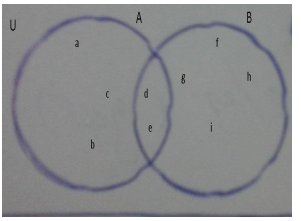Questões de Concurso Público IGP-RS 2017 para Perito Criminal - Biomedicina/ Farmácia/ Biologia
Foram encontradas 80 questões
A Lei nº 8.666/1993 (Lei Geral de Licitações e Contratos Administrativos) estabelece em seu artigo 66 e seguintes como deve se dar a execução dos contratos administrativos. Segundo esse artigo, “o contrato deverá ser executado fielmente pelas partes, de acordo com as cláusulas avençadas e as normas desta Lei, respondendo cada uma pelas consequências de sua inexecução total ou parcial.” Acerca da execução dos contratos, analise as assertivas a seguir:
I. Cabe à administração fiscalizar o cumprimento dos requisitos de acessibilidade nos serviços e nos ambientes de trabalho.
II. O contratado deverá manter preposto, aceito pela Administração, no local da obra ou serviço, para representá-lo na execução do contrato.
III. A Administração Pública responde solidariamente com o contratado pelos encargos previdenciários resultantes da execução do contrato.
Quais estão corretas?
Consider the statements below:
I. The plural of the word ‘beauty’ (l.40) follows the same rule that explains the formation of the plural form ‘displays’ (l.24).
II. The plural of ‘crisis’ (l.05) is made by dropping ‘is’ and adding ‘es’.
III. The rule that explains the formation of ‘values’ (l.30) and ‘pages’ (l.13) is the same.
Which ones are correct?
Analyse the statements about some expressions of the text, marking true (T) or false (F).
( ) The word ‘flimsy’ (l.07) could be replaced by ‘strong’ without changing the meaning of the utterance.
( ) The expression ‘jewel-like beauty’ (l.13)
means that the covers resemble the
beauty of jewellery.
( ) The author uses the expressions “more cloth, more foil, more embossing, page staining, sewn bindings, deckled edges” (l.14-15) to describe the perfect cover in his opinion.
( ) Without considering the context, it is possible to translate the expression ‘light-bulb moment’ (l.37) as ‘momento de inspiração’.
The correct and respective order is:
Analyse the statements below, considering the context of occurrence in the text.
I. Considering the grammatical context, the expression ‘have always had’ (l.01) should be translated to ‘sempre tiveram’.
II. The phrasal verb ‘went on’ (l.29) has the same meaning as the expression ‘took place’.
III. The verb ‘persuading’ is in the –ing form due to the presence of the preposition ‘at’ (l.24).
Which ones are correct?
Consider the following statements about the text:
I. Nowadays people pay more attention to how a book looks like than before. This popularity of beautiful covers and books is a characteristic of the last few years.
II. According to the author, the success of book sales is only related to the design of their covers.
III. The author mentions that when there is an effort to design a beautiful cover it indicates that the content of the book may also be important.
Which ones are in agreement with the text?
A afirmação seguinte é verdadeira: “Se uma pessoa possui a Síndrome de Huntington (DHQ), quando sua idade estiver ao redor de 40 anos, vai manifestar movimentos corporais anormais e falta de coordenação, afetando também várias habilidades mentais e alguns aspectos de personalidade”. A síndrome DHQ é detectada de forma mais precisa através de um teste genético onde se busca a proteína de Huntington.
Pedro e Alexandre fizeram exames genéticos e foi detectada a presença da proteína de Huntington no exame de Pedro e esta não estava presente no exame genético de Alexandre.
Utilizando a proposição enunciada, os resultados dos exames e o raciocínio dedutivo permitem afirmar que:
Três frascos (X, Y e Z) foram preenchidos: um com água, um com álcool e um com éter, não necessariamente nessa ordem. A seguir são feitas três afirmações:
I. Y não contém água.
II. X contém éter.
III. Z não contém álcool.
Nas declarações feitas nas afirmações I, II e III, apenas uma é verdadeira. Nesse caso, podemos afirmar de forma inequívoca que:
Quatro conjuntos A, B, C e D são definidos da seguinte forma:
A = {a, b, c, d, e}.
B = {d, e, f, g, h, i}.
C = {a, b, c, f, g, h, i}.
D = {f, g, h, i}.
Onde, U é o conjunto universo.

De acordo com a representação gráfica e das
definições dos conjuntos, é correto afirmar que:
